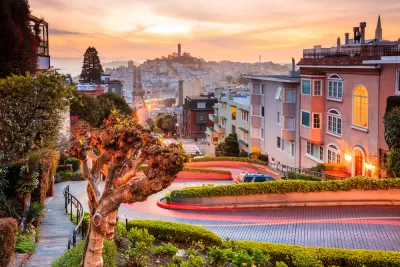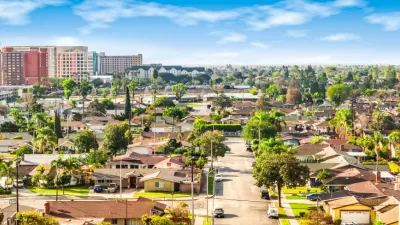The city cleared a major hurdle as its housing plan, which paves the way for 82,000 new homes by 2030, is certified by the state.

A plan to build over 82,000 new homes over the next ten years in San Francisco was approved by the city’s mayor and Board of Supervisors and certified by the state of California last week, reports Sunni Khalid for KALW. “Over half of those homes are planned to be affordable homes for low- and middle-income residents.” The goal is triple the city’s average housing production over the last decade.
The plan comes in response to the state’s crackdown on local housing elements, which often fail to deliver the number of new housing units needed to keep up with demand. As Khalid explains, “In its last housing plan, San Francisco only reached about 50 percent of its goal to build 16,000 affordable housing units from 2015 to 2022.”
Now, more stringent state rules and enforcement mechanisms, such as the newly created Housing Accountability Unit, mean that cities will be held responsible for meeting specific milestones. San Francisco is required to permit 29,000 housing units in the next four years, or the city will have to suggest further rezoning actions.
FULL STORY: San Francisco approved for constructing more affordable housing

Planetizen Federal Action Tracker
A weekly monitor of how Trump’s orders and actions are impacting planners and planning in America.

Maui's Vacation Rental Debate Turns Ugly
Verbal attacks, misinformation campaigns and fistfights plague a high-stakes debate to convert thousands of vacation rentals into long-term housing.

Restaurant Patios Were a Pandemic Win — Why Were They so Hard to Keep?
Social distancing requirements and changes in travel patterns prompted cities to pilot new uses for street and sidewalk space. Then it got complicated.

In California Battle of Housing vs. Environment, Housing Just Won
A new state law significantly limits the power of CEQA, an environmental review law that served as a powerful tool for blocking new development.

Boulder Eliminates Parking Minimums Citywide
Officials estimate the cost of building a single underground parking space at up to $100,000.

Orange County, Florida Adopts Largest US “Sprawl Repair” Code
The ‘Orange Code’ seeks to rectify decades of sprawl-inducing, car-oriented development.
Urban Design for Planners 1: Software Tools
This six-course series explores essential urban design concepts using open source software and equips planners with the tools they need to participate fully in the urban design process.
Planning for Universal Design
Learn the tools for implementing Universal Design in planning regulations.
Heyer Gruel & Associates PA
JM Goldson LLC
Custer County Colorado
City of Camden Redevelopment Agency
City of Astoria
Transportation Research & Education Center (TREC) at Portland State University
Jefferson Parish Government
Camden Redevelopment Agency
City of Claremont





























